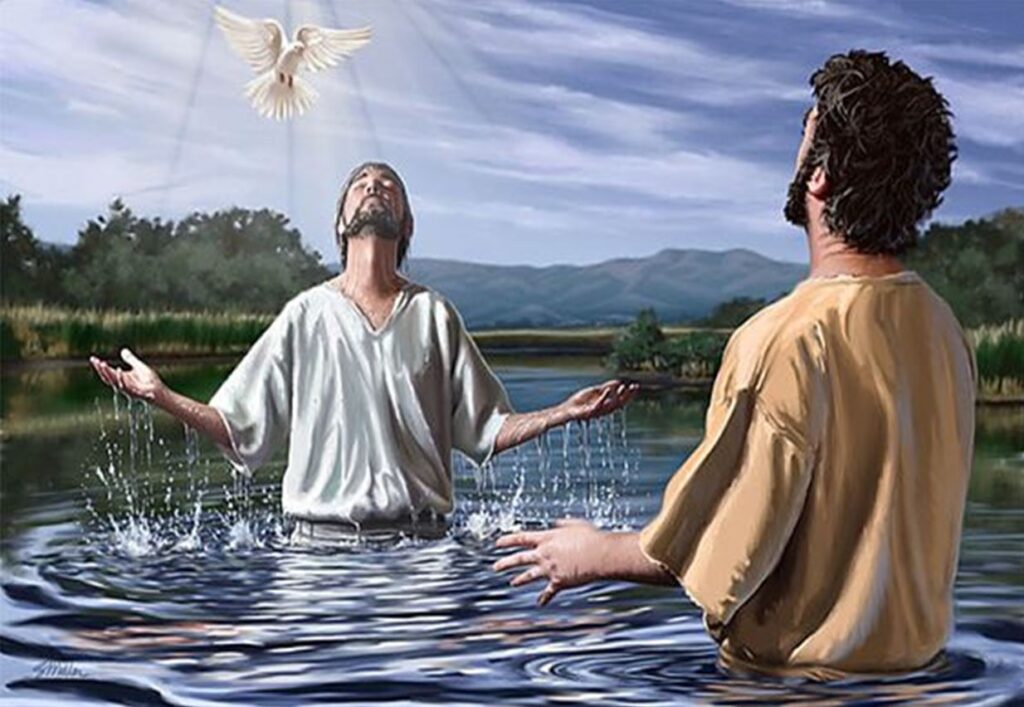1. The Origin and Nature of Sin
The wages of sin is death (Romans 6:23). From the beginning, sin has always separated man from God. In Eden, unbelief was the first sin—the refusal to take God at His Word. This root sin of unbelief gave rise to all other sins of the flesh. Thus, sin is not merely outward acts of transgression, but the inward failure to believe and obey God.
When John writes that “the blood of Jesus Christ cleanses us from all sin” (1 John 1:7), he points us to the only cure for both the root and the fruit of sin. No sin—whether of unbelief or of the flesh—can enter heaven, for God is holy and cannot behold iniquity (Habakkuk 1:13). Fulfilling all righteousness begins with the removal of sin’s barrier, accomplished only through Christ.
2. The Place of Confession
John exhorts, “If we confess our sins, he is faithful and just to forgive us our sins, and to cleanse us from all unrighteousness” (1 John 1:9). Yet in the same letter he declares, “Whosoever is born of God doth not commit sin” (1 John 3:9). At first these verses seem in tension, but together they reveal a divine process.
For the babe in Christ, confession of sins is necessary, for the child must learn to walk. But as the believer matures, confession shifts from the sins of the flesh to the confession of faith in Christ. Christ has already fulfilled all righteousness by His sacrifice. Our calling is not to remain forever in confession of failure, but to confess His finished work and walk in it.
As Paul declares, “There is therefore now no condemnation to them which are in Christ Jesus, who walk not after the flesh, but after the Spirit” (Romans 8:1).
3. Holiness and Righteousness in Christ
Holiness is not attained by human striving, but through union with the Holy One. “He that is unjust, let him be unjust still… and he that is holy, let him be holy still” (Revelation 22:11). The law was a shadow of good things to come; Christ is the substance.
As our High Priest, Jesus offered Himself once for all, and now ever lives to make intercession for us (Hebrews 7:25). Holiness is not a garment we weave for ourselves; it is the robe of righteousness He clothes us with. To fulfill all righteousness is to let His Spirit live out His life in us.
4. The Temple and the Spirit
In the old covenant, God dwelt in the temple made with hands. But now the believer is the temple of the living God (1 Corinthians 6:19). The Spirit of Christ takes His abode within us, cleansing the sanctuary of our hearts, so that righteousness is revealed not only in heaven but in our daily walk on earth.
Christ fulfilled righteousness for us so that God could dwell in us. The temple is no longer built by stone, but by Spirit.
5. The King of Righteousness and Water Baptism
When Abraham met Melchizedek, the “King of Righteousness,” he received bread and wine as a foreshadowing of Christ (Genesis 14:18). Jesus, after His own baptism, declared, “Suffer it to be so now: for thus it becometh us to fulfil all righteousness” (Matthew 3:15).
Water baptism, then, is not a ritual but an obedience to righteousness. It signifies the death of the old man and the rising to walk in the Spirit. By baptism we confess our faith in the One who fulfilled all righteousness, and by His Spirit we are empowered to live no longer after the flesh, but after the Spirit.
6. Conclusion: The Perfect Sacrifice
Christ is the Lamb of God who takes away the sin of the world (John 1:29). His offering was once for all, never to be repeated. To remain forever in the cycle of confession is to live as though the sacrifice were unfinished. But the Word of reconciliation declares it is finished (John 19:30).
Therefore, we do not overcome by our many confessions, but by the blood of the Lamb and the word of our testimony (Revelation 12:11). Faith makes us righteous, not endless striving. Holiness is not self-made, but Spirit-given.
The believer is called to live continuously holy and righteous—not in his own strength, but by the indwelling life of Christ, who alone fulfills all righteousness in us.


